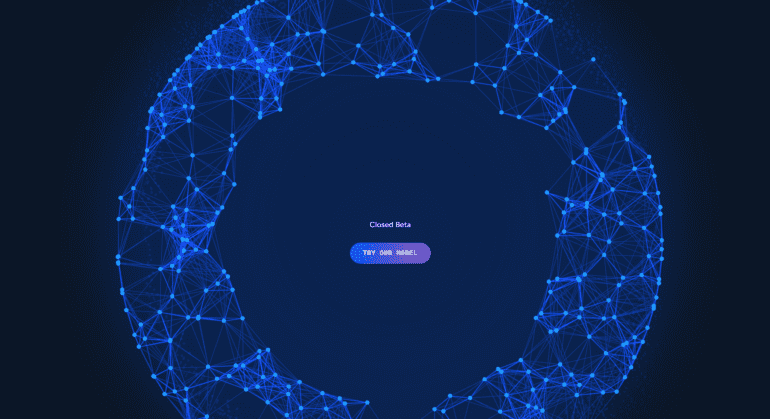TL;DR:
- Reka emerges as a leading provider of custom AI models for enterprises.
- Large language models (LLMs) like OpenAI’s GPT-4 have limitations when it comes to precise instructions and consistency.
- Reka’s team of researchers from DeepMind, Google, Baidu, and Meta founded the company to address these challenges.
- Their debut product, Yasa, is a multimodal AI assistant that understands images, videos, tabular data, words, and phrases.
- Yasa can be easily personalized to proprietary data and applications, offering enterprises greater flexibility.
- Reka also provides a service to adapt LLMs to custom company datasets.
- Competitors in the market include Writer, Contextual AI, LlamaIndex, and Cohere.
- Reka’s strategic partnerships with Snowflake and Appen demonstrate its early success.
- The company aims to give every business its own production-quality foundation model.
Main AI News:
The rise of large language models (LLMs), such as OpenAI’s GPT-4, has ignited a frenzy in the AI industry. Their remarkable ability to analyze and generate text has captured the attention of organizations worldwide. However, when it comes to leveraging LLMs for specific tasks like crafting ad copy in a brand’s distinct style, their generalist nature becomes a hindrance.
Enter Reka, a groundbreaking company that has emerged from stealth mode today, backed by an impressive $58 million investment led by DST Global Partners and Radical Ventures. Reka’s team of researchers hailing from DeepMind, Google, Baidu, and Meta have devised a solution to the challenge of precise instructions and consistency in LLMs. They recognized that fine-tuning, and narrowing the scope of an LLM, while technically demanding and costly, can address this limitation.
Reka’s visionary founders, Dani Yogatama, Cyprien de Masson d’Autume, Qi Liu Head, and Yi Tay, have been instrumental in developing AI systems like DeepMind’s AlphaCode and Bard. Through their experiences, they realized the impracticality of deploying a large LLM for all possible use cases. In an email interview with TechCrunch, Yogatama shared, “We understand the transformative power of AI and would like to bring the benefits of this technology to the world in a responsible way. Reka is a research and product company that develops models to benefit humanity, organizations, and enterprises.“
Reka’s debut offering, Yasa, may not fulfill these lofty aspirations entirely, but it epitomizes the company’s initial approach. Yasa goes beyond text comprehension, as it is a multimodal AI “assistant” capable of understanding images, videos, and tabular data, in addition to words and phrases. Yogatama explains that Yasa can generate ideas, answer basic questions, and extract insights from a company’s internal data. What sets Yasa apart is its remarkable personalization capabilities, allowing easy adaptation to proprietary data and applications.
“Our technology allows enterprises to benefit from progress in LLMs in a way that satisfies their deployment constraints without requiring a team of in-house expert AI engineers,” asserts Yogatama confidently.
However, Yasa is just the beginning for Reka. The company’s future endeavors focus on developing AI models capable of accepting and generating an even wider range of data types, while continuously improving themselves without the need for extensive retraining.
Reka also provides a valuable service, exclusively available to select customers at present, which adapts its developed LLMs to custom or proprietary company datasets. Customers can deploy the “distilled” models on their own infrastructure or via Reka’s API, depending on specific application and project requirements.
It is worth noting that Reka faces competition from other startups striving to create models better suited for enterprise use cases. Writer offers customers the ability to fine-tune LLMs according to their own content and style guides. Contextual AI and LlamaIndex, recently emerging from stealth, are developing tools that enable companies to incorporate their data into existing LLMs. Meanwhile, Cohere trains LLMs to meet customers’ precise specifications. Established players like OpenAI are also not to be outdone, as they now provide tools for fine-tuning models and connecting them to the internet and other sources, ensuring their relevance and up-to-dateness.
Despite the competition, Reka has already garnered an early customer and investor, Snowflake, which partnered with the startup to enable Snowflake customers to deploy Yasa from their accounts. Furthermore, Appen, a prominent big data analytics company, announced its collaboration with Reka to develop tailored multimodal model-powered apps for the enterprise.
Radical Ventures Partner, Rob Toews, explains his decision to invest in Reka, saying, “What makes Reka unique is how it offers every business the power and potential of an LLM without having to put up with many tradeoffs. Reka’s distilled Yasa models keep the data within the enterprise; they’re incredibly efficient in terms of cost and energy and don’t require costly research teams to build models from scratch. If every business will become an ‘AI’ business, Reka’s ambition is to give each of those businesses its own production-quality foundation model.“
Conclusion:
Reka’s entry into the market signifies a significant shift in enterprise AI. By offering custom AI models tailored to specific use cases, Reka addresses the limitations of generalist LLMs. The ability to personalize models to proprietary data and applications provides enterprises with greater control and flexibility. With strategic partnerships and early customer traction, Reka is well-positioned to revolutionize the industry and empower businesses to leverage AI more effectively.

